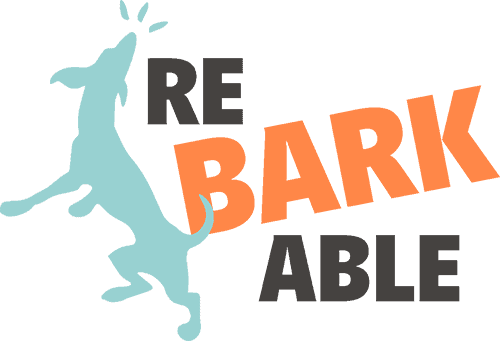Chemical castration is one of the many processes that is an option to sterilize your male dog.
When young, lively puppies are going through their series of vaccinations, eventually your veterinarian is going to ask about having your ball of fluff spayed or neutered. Male dogs undergo a neuter, or castration, where the females will be spayed.
Many pet parents feel nervous about the idea of their young pet going under anesthesia, and some can’t at all because of heart issues. Thankfully, science has come a long way and there is now a new option for neutering, called “chemical castration” – which is kind of the “Try before you buy” option!
If you’ve been wondering about an alternative to having your dog neutered, then keep reading to find out more about chemical castration, how long it lasts and its overall effectiveness.
Why Should We Castrate or Sterilize Dogs?
Castrating, or neutering, a dog is an important and easy way to control the animal population. Not only are we helping shelters and rescues to reduce the number of dogs and cats that need homes, encourage responsible breeding but we are lowering the incident of inbreeding and health complications that arise from overpopulation.
Castrating dogs also helps with the following:
- Unwanted sexual behaviors such as humping and urine marking
- Roaming or running away from home
- Minimizing the potential for disease and prostate cancer
If you are on the fence about neutering your dog, just know that you have options!

What Is Chemical Castration In Dogs?
Altering the reproductive status of farm and domesticated animals has been happening for hundreds of years to help with population control and unwanted behaviors. Chemical castration is essentially, a temporary and reversible neutering of your dog.
It is the process of injecting your sexually mature canine with a tiny, microchip-sized implant under the skin on their back, called Suprelorin.
There are two implant injections that can be given to your dog, one that lasts for 6 months and another that lasts for a year.
Chemical castration has been the less common method of neutering dogs in the United States, but it is slowly becoming more popular.
How Does Chemical Castration Work?
Chemical castration works by suppressing the function of the pituitary gonadal axis, which is the part of the brain that controls reproductive function. Suprelorin is the name of the implant that is injected under the skin of a dog undergoing the chemical castration procedure.
When a dog has the Suprelorin implant, its active substance, deslorelin, is secreted slowly over time. This eventually suppresses the production of hormones that causes the circulation of testosterone throughout the body, leading to a halt in sperm production and libido. As long as deslorelin is being secreted, your dog will remain infertile.
The good thing about chemical castration is that you can always have the implant removed if you decide to breed sooner than expected or if you are concerned that your dog is having an adverse reaction to it.
What Can You Expect At The Vet With Chemical Castration?
Thankfully, the method of applying the Suprelorin implant is quite simple and non-invasive, especially compared to the surgical method of castration. Your dog’s veterinarian will inject them with the small, microchip-sized Suprelorin implant under the skin, somewhere between their shoulders and lower back.
This procedure is only as painful as the initial pinch of the needle piercing the skin. There should be little to no lingering pain, resulting in a super-fast recovery.

How Does Chemical Castration Vary From Surgical Castration?
Chemical castration is where we are temporarily suppressing the testicles ability to produce sperm via the Suprelorin implant under the skin. Traditional, surgical castration is when the testicles are completely removed, rendering the pet permanently infertile.
How Long Does Chemical Castration Last?
Chemical castration has two different options as far as the length of time that the implant will stay effective. According to the manufacturers of Suprelorin, the implant takes about 1 month to become fully effective and will last for about 6 months, but there is also a 12 month option.
Once the active ingredient, deslorelin, has been completely absorbed by the body, then the implant will no longer be effective. If you are wanting your dog to remain infertile for longer, you will have to have a new Suprelorin implant injected.
Does The Suprelorin Implant Need To Be Removed?
Nope! Thankfully, you don’t have to worry about having the Suprelorin implant removed after the 6 months is over. The implant is designed to break down over time and it will eventually dissolve completely after about a year.
What Are The Pros And Cons Of Chemical Castration?
There are certainly pros and cons to both the chemical castration method and the traditional one. There are also several reasons for choosing one over the other, so let’s talk about the pluses and minuses to the chemical castration method.
Pros
Cons
A major medical benefit to the chemical castration method is in regards to treating prostate or testosterone-related conditions in dogs that are either too old or too sick to undergo surgery.
What Side Effects And Behavior Changes Can You See In Dogs With Chemical Castration?
When your dog has been chemically castrated, there are several potential side effects that can occur. Thankfully, the benefits have been found to outweigh the risks, according to the Committee for Medicinal Products for Veterinary Use.

Adverse Side Effects
The chemical castration implant, Suprelorin, has a desired effect of reduced testosterone, libido and sperm production, resulting in temporary infertility. However, just like with any procedure, there can be adverse side effects. Albeit, they are short-lived and non-fatal.
- Swelling and inflammation at the injection site
- Changes in activity and appetite
- Changes in your dog’s hair coat
- Reduction in testicle size
- Permanent infertility*
*A vast majority of dogs will regain their fertility, but it is, unfortunately, possible for them to remain infertile. However, unless their sperm was tested prior to having the Suprelorin implant injected, it would be hard to confirm that the infertility is due to that and not just nature.
Behavioral Changes
No matter how your pet was sexually altered, there will always be the potential for some kind of behavior changes.
Behaviors and activities that are performed due to their natural male sex hormones are all that should be affected by chemical castration. Once your dog has the implant in them, you may start to see these changes in your companion:
- Less humping and other sexual behaviors
- Less urine marking
- No longer interested in female dogs
It is important to understand that castration, chemical or surgical, is no replacement for training your dog. Their breed, personality, energy levels and genetics will play more into their behaviors than hormones.
Please remember to always socialize and train your dog as this can minimize behavioral issues in the future.
How Do You Know If Chemical Castration Is Right For Your Dog?
Choosing the right method of castration for you and your dog is important as you want to feel like you have made the correct decision. So, how are you supposed to know which is best?
Below is a brief list of the reasons why you would want to choose chemical castration over the traditional surgical method.
- Owners who are considering breeding their dog in the future
- Owners who are wanting to trial their dogs behavior before permanently castrating them
- Owners who don’t want to see their dog without testicles (you can always look into Neuticles)
- Owners who are simply unsure about breeding but have an unspayed female around the male frequently (trying to avoid an OOPS)
While there is always a place for responsible breeding, just remember that whilst your dog is of course a wonderful dog – it’s not necessarily the case that they are good to breed from. Therefore, if you are not going to breed your dog, having them castrated (chemically or surgically) is the best thing to do.
Chemical Castration: Giving Owners Options For Neutering Their Dog
This is one of my more favoured recommendations when it comes to complex behavioural issues. A lot of the time it’s understood that there is a contributing factor between neutering and something like aggression. So, I’ll always advocate this option so we can see and monitor what’s going on and whether it does truly have an effect.
While altering your dog’s reproductive status is a big decision to make, owners can rest easy knowing that they have more than just one option.
If you want to read more about the options for your dog, head over to The Rebarkable Spay & Neuter Information Center! Where you’ll find lots of information to help you decide what’s right for you. And, remember you can also talk to your vet!

Author, Ali Smith
Ali Smith is a professional, qualified, and multi-award winning trainer is the founder of rebarkable. She has always believed animals deserve kindness and champions force free methods. Believing that dog guardians will all choose the kindest options if proper information is provided, she aims to help all dog guardians who need it and make dog training as accessible as possible
Ali lives win Maryland, US with her husband and her three dogs.







0 Comments